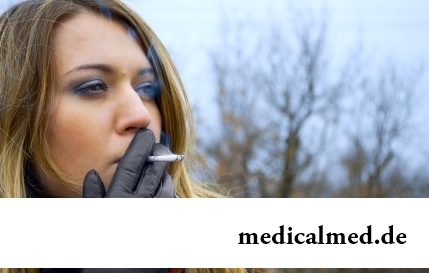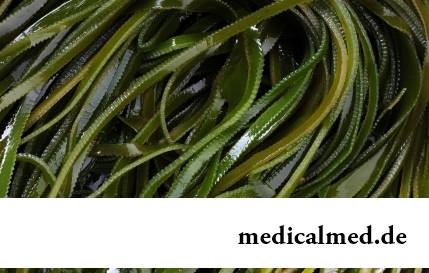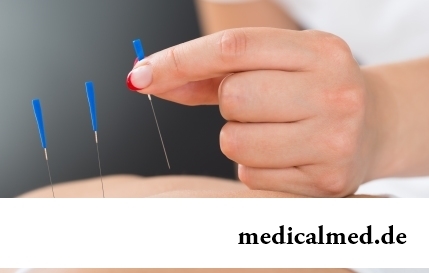





Allergist
The allergist – the doctor who is engaged in prevention, diagnosis and treatment of allergic reactions, and also defines the reasons and mechanisms of manifestation causing them.

Allergens around us
Allergy – a disease which is characterized by unusual sensitivity to various substances. Its reasons are covered in immune system therefore what does not cause painful reactions in most of people, at the allergic person can lead to development of a serious illness.
Sneezing, itch, dacryagogue and irritations of skin – usual symptoms of display of an allergy which reason often can disappear in drugs, blossoming of plants and in daily household goods.
Household allergens are various: from a dispute of microscopic mold mushrooms and particles of epidermis of the person to allergens of cockroaches and book dust. Also rather often allergies to animals at which allergenic activity feathers, wool, saliva, urine and excrement have meet.
Without consultation of the allergist to establish the reason causing an allergy, rather difficult. However, according to allergists, reduction of contact with allergen facilitates the course of allergic diseases. Therefore before registering in reception of the allergist, it is necessary to adhere to recommendations which will help to facilitate significantly unpleasant manifestations of symptoms of a household allergy:
- It is necessary to reduce as much as possible the number of places of accumulation of dust – to remove canopies from beds, carpets and fur skins from a floor and to carry out wet cleaning daily;
- It is the best of all to store small home decoration and books on the glazed shelves;
- It is necessary to purify air by means of cleaning devices and to maintain humidity indoors at the level of 40-60%.
For whom consultation of the allergist is necessary
Consultation of the allergist is necessary at the first symptoms of an allergy. Allergologists conditionally divide all allergic diseases on clinical manifestations and the reasons which lead to their emergence:
- Food allergy to which main displays carry acute urticaria and various digestive disturbances arises because of hypersensitivity of an organism to some foodstuff;
- Leads an allergic inflammation of all respiratory system to bronchial asthma which main symptom is breath difficulty, including mucous a nose and the smallest bronchial tubes;
- The pollinosis which is characterized by watery allocations from a nose sneezing, an itch, dacryagogue, sometimes hypostasis of eyes, and in hard cases – strong attacks of suffocation, is caused by pollen of plants.
Owing to the fact that the allergy can be shown differently and have various reasons, for timely diagnosis it is necessary to address the good allergist.
The allergist it is necessary to address for consultation at emergence and development:
- Inflammations of a mucous membrane of a nose against the background of allergic reactions that is peculiar to allergic rhinitis;
- Irritations of skin with flat blisters that is the characteristic course of acute and chronic urticaria;
- Food allergy which is shown as uncharacteristic reaction to some food stuffs;
- Inflammatory process of a conjunctiva of eyes that is peculiar to allergic conjunctivitis;
- Senna to the fever which is often developing with dermatitis and nervous reaction that is connected with a seasonal allergic rinokonjyunktivit;
- To bronchial asthma;
- Quincke's disease of skin and mucous membranes (differently – a Quincke's edema);
- Atopic dermatitis which often arises for the genetic reasons;
- Medicinal allergy which is shown as uncharacteristic reaction to medicines;
- Contact allergic dermatitis which develops usually on the sites of skin which are densely contacting to allergen;
- Insect allergy which is shown as uncharacteristic reaction to stings of some insects.
Some diseases have seasonal nature and proceed not sharply, however, according to allergists, even in these cases it is recommended to carry out treatment not to provoke development of more serious diseases.
How to establish the diagnosis an allergy
There is a set of diseases which have manifestations similar to allergic. To make the correct diagnosis, it is necessary to address for consultation of the allergist.
Except survey the allergist has exact and objective methods allowing to validate the diagnosis among which there are laboratory tests with allergens and skin tests with allergens.
Children's allergist
The first allergic manifestations – dryness and reddening of an integument, can arise already at chest age of the kid. At these symptoms it is necessary to address the children's allergist who will be able to appoint effective therapy after installation of the diagnosis and will prompt what of care products for gentle skin of the child are necessary in each case.
The good allergist will also not disregard a diet of the nursing mother and selection of medical mixes for the child, and also will teach to enter them correctly. All complex of appointments and councils which is carried out by the children's allergist is directed to reduction of symptoms of an allergy and early detection of its reasons.
As a rule, reception of the allergist takes place in the children's centers in which it is possible to conduct examination, necessary for installation of the diagnosis. Unlike the adult, the children's allergist specializes in display of an allergy at children's age and will help to establish quicker the reasons causing alarming symptoms.
How to choose the good allergist
Most often at the choice of the doctor lean on responses and recommendations. Comments on allergists, and also information on experience, diagnostic opportunities of the center and specialization of doctors can be found on pages of medical institutions in which they work.
However today not all centers are widely presented on the Internet therefore before making an appointment it is possible to address the allergist on city forums at which usually exchange impressions about methods and overall performance of various doctors.
During life the average person develops neither more nor less two big pools of saliva.

Today about 30 diseases, sexually transmitted are known. To wide circulation of these illnesses extremely with...
Section: Articles about health
Several decades ago the basil (the district khan, реан, Reagan) was considered as a part of the Caucasian or east cuisine, but today it strongly took the place on tables of Russians. Greens of this plant possess a strong, pleasant smell and specific fresh taste, because of to...
Section: Articles about health
Household skills which to us so diligently imparted in the childhood it appears, not always bring only benefit. According to results of the last researches, some habits which for a long time were considered useful and even necessary can become the reason of serious indispositions. Here only seven the most widespread of them....
Section: Articles about health
Nightmares belong to the most unpleasant frustration. Statistically, they happen at 4% of adults, and almost at 70% of children and...
Section: Articles about health
Not without reason doctors say that 90% of diseases begin or develop because of misoperation of intestines. Disturbance of its functions is connected with various factors among which the important place belongs to excessive "clutter" of an intestinal path. In an organism скаплив...
Section: Articles about health
Ayurveda - the most ancient tselitelsky practice which came to us from India. It represents the doctrine about maintenance of physical, psychological and moral health of the person by means of the complex of procedures including a diet, cleaning of an organism, breathing exercises, massage, and in case of a disease - and medicinal therapy. The healers practicing Ayurveda assign very important part to spices, and at the heart of Ayurvedic drugs, as a rule, there are they. It is considered that spices not of t...
Section: Articles about health
Smoking not only exerts a negative impact on the state of health of the consumer of tobacco products, but is a source з...
Section: Articles about health
Dark circles (bruises) under eyes – a shortcoming with most of which often fight against the help of cosmetics (proofreaders, saloon procedures and so forth), eliminating only its visibility. However, according to doctors, skin around eyes – the indicator of many disturbances in an organism...
Section: Articles about health
The climax, or menopause is the normal process of the termination of genital function of the woman which is followed by serious hormonal changes in an organism. Usually the menopause begins at the age of 50-55 years, but characteristics of this process are very individual. Factors of earlier approach of a climax are irregular sex life, numerous abortions, addictions, existence of endocrine, autoimmune and gynecologic diseases, frequent stresses and excessive hobby of diets...
Section: Articles about health
Very often as a source of the infection which caused a disease serves our house - the place which a priori has to be safe. However...
Section: Articles about health
The kid who was recently born is surrounded with love of adult family members and their cares without which the baby cannot exist. Some parents consider that gentle attachment and caress are quite enough that the child correctly developed and was happy...
Section: Articles about health
We present to yours the TOP of the medicamentous means exerting the stimulating impact on a potentiality, i.e. on ability of the man to commission of sexual intercourse. At once it is necessary to tell that not always disturbances of erectile function can be eliminated with reception of this or that drug. The reasons of decrease in a potentiality there can be a set, from banal overfatigue before tumoral process in a small basin therefore if the man faces similar problems too often, it should turn...
Section: Articles about health
Tuberculosis – a serious infectious disease which development is caused by mycobacteria (Koch's bacilli). The illness is known from a deep d...
Section: Articles about health
Dietary supplements (dietary supplements) for the last decades were so thoroughly included into our life that, apparently, it is already impossible to find the person who at least once did not try them. At the same time, most of our compatriots have a vague idea about...
Section: Articles about health
For residents of the countries of Southeast Asia various algas are an obligatory component of a daily diet. Their popularity is connected not only with high tastes, but also with numerous curative properties. Russians are a little familiar with products such that is distressing: algas are so useful that they should be eaten as often as possible. Let's get acquainted closer with useful properties of this seafood....
Section: Articles about health
All are familiar with cold, and practically everyone believes that he has sufficient knowledge and experience that correctly to treat it. N...
Section: Articles about health
Tea is loved and use almost everything. This drink has tonic properties, contains the tannins capable to suppress activity of causative organisms. Recently great popularity was gained by teas with vegetable additives. Лечеб...
Section: Articles about health
For the last decades the diabetes mellitus of the second type became really world problem. The number of cases annually increases, and average age of patients for whom the illness is diagnosed, steadily decreases. Specialists consider that one of the main reasons for this trouble is disturbance of a diet. In other words, the huge number of people regularly overeats or excessively is fond of the products causing glucose exchange process failures....
Section: Articles about health
What woman does not dream of a beautiful and thick hair? So far physicians developed difficult schemes on hair transplant, in the bet industry...
Section: Articles about health
Smack in a mouth can arise in the natural way – as a result of lack of morning hygiene or reception of the corresponding food. However in certain cases its existence is a sign of certain pathologies, and allows to reveal an illness at an early stage. In we depend...
Section: Articles about health
Memory is an ability of the central nervous system to fix, keep and as necessary to reproduce information on knowledge or skills received by the person or an animal during life. The mechanism of this process is up to the end not studied....
Section: Articles about health
You heard that laughter prolongs life? To establish longevity direct link with sincere fun to researchers yet not удалос...
Section: Articles about health
Statistically cystitis 25-30% of women up to 40 years have. With age this indicator raises, besides many do not get to statistics because do not see a doctor. The most sad that after the regular visits to doctors, long reception of antibiotics...
Section: Articles about health
For most of the working people the problem of having a snack is particularly acute enough. Sooner or later there is a question: what can be eaten quickly between a breakfast and a lunch or a lunch and leaving from service so that to receive necessary power feed, but not to overload an organism with harmful components or excess calories? We bring to your attention the list of products which quite conform to these requirements....
Section: Articles about health
The stroke is one of the most widespread diseases of the person, annually in the world about 6 million cases эт are registered...
Section: Articles about health
It seems, quite recently you brought the baby from maternity hospital, but time flew by, and here it is already going to join the first in life children's collective. How to prepare the child for visit of a garden? What needs to teach him to facilitate process адап...
Section: Articles about health
The technique of acupuncture (acupuncture) is used in the medical purposes more than three and a half millennia. It is eurysynusic and recognized as official medicine in the majority of the developed countries of the world. Influence by fine needles on so-called points of acupuncture contributes to normalization of a metabolism and hormonal background, activates protective forces of an organism, has anesthetic and antiinflammatory effect, stabilizes a condition of mentality....
Section: Articles about health
